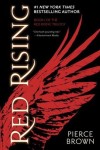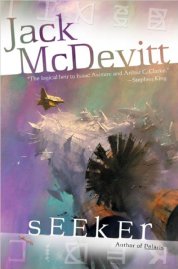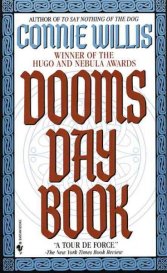Our sci-fi guy, Harold, has an author recommendation for you:
 If I could only recommend one science fiction author to read this year, it would be Ted Chiang. Though Chiang has written only 14 of short stories and one novella, his works have been critically acclaimed. His short story collections are Exhalation and Stories of Your Life.
If I could only recommend one science fiction author to read this year, it would be Ted Chiang. Though Chiang has written only 14 of short stories and one novella, his works have been critically acclaimed. His short story collections are Exhalation and Stories of Your Life.
Chiang has been the recipent of four Nebula awards, four Hugo awards, and won the John W. Campbell Award for Best New Writer (for his short story, “Babylon”). His short story, “Story of Your Life,” was the basis of the film Arrival (2016). Exhalation was a Goodreads Choice Award in 2019. The New York Times named Exhalation one of the 10 Best Books of 2019. That’s a lot of awards that are, in my opinion, well deserved!
Chiang’s works are hard to describe since they are not conventional science fiction, per se. It’s a subtle distinction, but they are more fiction based on science than science fiction. President Obama, via Facebook, said that they are “a collection of short stories that will make you think, grapple with big questions, and feel more human. The best kind of science fiction.”
 These are precisely articulated, well-crafted and thought-provoking stories. There are no rocket ships or cosmic battles. Instead, they expand upon and extend science, and technology that exists today. Two of my favorites from Exhalation are “Babylon”, a re-work of the Tower of Babel story, and “Merchant and the Alchemist’s Gate”, about a merchant in ancient Persia who can travel through time to correct past mistakes.
These are precisely articulated, well-crafted and thought-provoking stories. There are no rocket ships or cosmic battles. Instead, they expand upon and extend science, and technology that exists today. Two of my favorites from Exhalation are “Babylon”, a re-work of the Tower of Babel story, and “Merchant and the Alchemist’s Gate”, about a merchant in ancient Persia who can travel through time to correct past mistakes.
Exhalation and Stories of Your Life are available at the Cheshire  Public Library as printed books. Exhalation is also available as an ebook, and Stories of Your Life is also available as a downloadable audiobook. They are well worth reading. The film, Arrival, based on Chang’s “Story of Your Life”, is available on DVD and Blu-Ray.
Public Library as printed books. Exhalation is also available as an ebook, and Stories of Your Life is also available as a downloadable audiobook. They are well worth reading. The film, Arrival, based on Chang’s “Story of Your Life”, is available on DVD and Blu-Ray.
 The world of
The world of  Her novels centered around two main themes
Her novels centered around two main themes Le Guin
Le Guin Vonda McIntyre
Vonda McIntyre 
 My final recommendation
My final recommendation its core,
its core, 






 x Benedict
x Benedict travel novels. These include
travel novels. These include